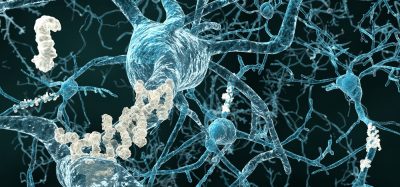New discovery leads to greater understanding of Alzheimer’s disease
Posted: 25 October 2019 | Rachael Harper (Drug Target Review) | No comments yet
A new study has linked an inflammatory protein to impaired memory mechanisms which could lead towards finding a more effective treatment for Alzheimer’s.


An important discovery has been made in understanding the role a particular protein plays to impair memory in Alzheimer’s disease, which could lead to more effective treatments in the future.
Professor Cliff Abraham and Dr Anurag Singh from the Department of Psychology at the University of Otago, New Zealand have identified that a protein in the brain – tumour necrosis factor-alpha (TNFα) – normally associated with inflammation, becomes abnormally active in the Alzheimer’s brain, impairing the memory mechanism.
The overproduction of this protein may be one of the reasons behind the disease-related impairments of memory formation in the brain.
“While TNFα has been linked previously with Alzheimer’s and memory studies, it has not been understood that neural overactivity can drive the production of this protein to inhibit memory mechanisms in the brain,” said Professor Abraham. “We are pleased with our findings that links this inflammatory protein to impaired memory mechanisms.
“It’s one more step forward towards finding a more effective treatment for Alzheimer’s than those currently available.”
There are only a few studies testing TNFα therapeutics in Alzheimer’s conditions, Abraham said, and getting good penetration of therapeutics into the brain is still a problem that needs solutions.
We still need drugs to treat those with the disease already…”
“There is a huge international effort aimed at preventing Alzheimer’s disease onset or treating it once it develops. Lifestyle changes and improved healthcare are having some impact already in delaying onset,” Professor Abraham says. “However, we still need drugs to treat those with the disease already and we hope our work adds to that body of knowledge to support further work on TNFα-based therapies which will improve the resilience of the brain to the pathological insults.”
Dr Singh explained the findings are significant given the protein has a role to play in regulating memory mechanisms in both healthy and diseased conditions. “In healthy conditions, TNFα is involved in the sleep/wake cycle, normal learning and in food and water intake, however, in diseased conditions it is involved in neurological disorders such as Alzheimer’s and Parkinson’s Disease.”
The research paper was published in the Journal of Neuroscience.
Related topics
Disease Research, Neurosciences, Protein, Research & Development, Therapeutics
Related conditions
Alzheimer’s disease
Related organisations
University of Otago
Related people
Dr Anurag Singh, Professor Cliff Abraham








